ASTANA – A delegation of the members of the European Parliament led by David McAllister, chair of the Committee on Foreign Affairs (AFET), visited Kazakhstan and the Kyrgyz Republic on Aug. 21-25 in a broader effort to intensify the European Union’s (EU) engagement with Central Asia. In an interview with The Astana Times, McAllister discussed Kazakhstan’s role in the EU foreign policy agenda, prospects for cooperation in energy and transport, and as well as the impact of geopolitical developments.
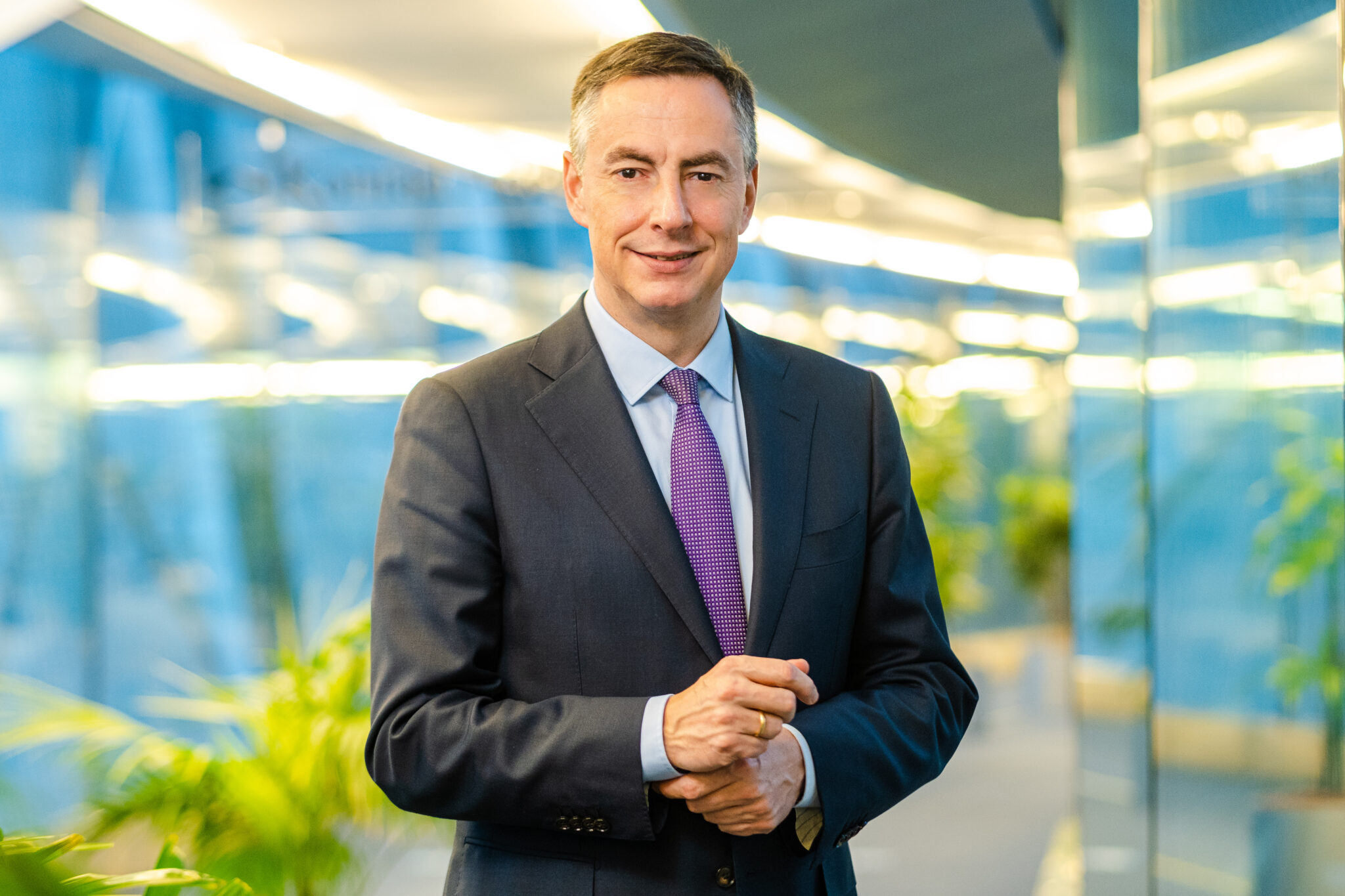
David McAllister is also a member of the Group of the European People’s Party (Christian Democrats). Photo credit: david-mcallister.de
“We came to Kazakhstan because we are interested in understanding the developments in your country and the reforms that are being implemented. Our objective was to exchange views about the common challenges that both Kazakhstan and the EU are facing in the current complex geopolitical environment. We also wanted to discuss the prospects for further developing our bilateral relations for our mutual benefit,” said McAllister.
During their visit, the delegation met with State Counselor Erlan Karin, key deputies of the Mazhilis, the lower house of the Kazakh Parliament, including Aigul Kuspan, chairwoman of the Committee for International Affairs, Defense and Security, Commissioner for Human Rights Artur Lastayev, Minister of Economy Alibek Kuantyrov, Deputy Foreign Minister Roman Vassilenko, and representatives of civil society.
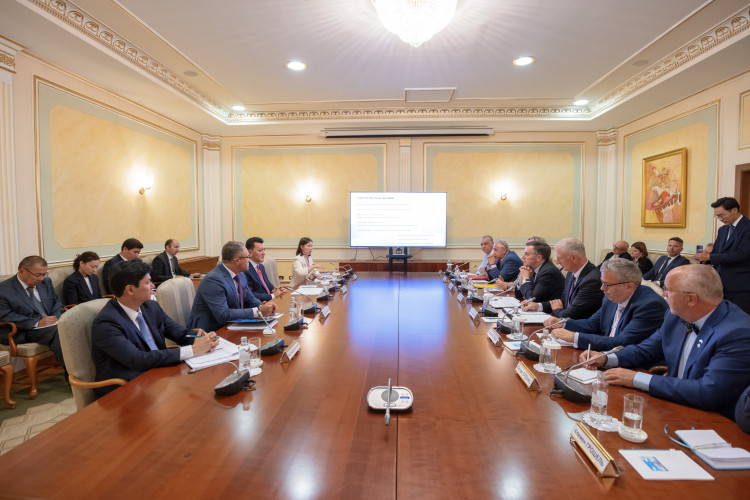
The delegation meets State Counselor Erlan Karin. Photo credit: akorda.kz
The start of what he and the collective West term “Russia’s war of aggression against Ukraine” caused significant geopolitical shifts, said McAllister.
“In order to respond to them, the EU has intensified its engagement with partners around the world. Central Asian states were no exception, as evidenced by a number of high-level meetings and initiatives to strengthen cooperation in key areas of mutual interest,” said the diplomat.
He commended Kazakhstan’s position on that conflict, which began full-scale on Feb. 24, 2022, and its commitment to the UN Charter and international law.
“While understanding how difficult it is to maintain that position, taking into account Kazakhstan’s membership in the Eurasian Economic Union and the Collective Security Treaty Organisation, we believe that Kazakhstan will be able to do so, also because of its own interests,” he continued.
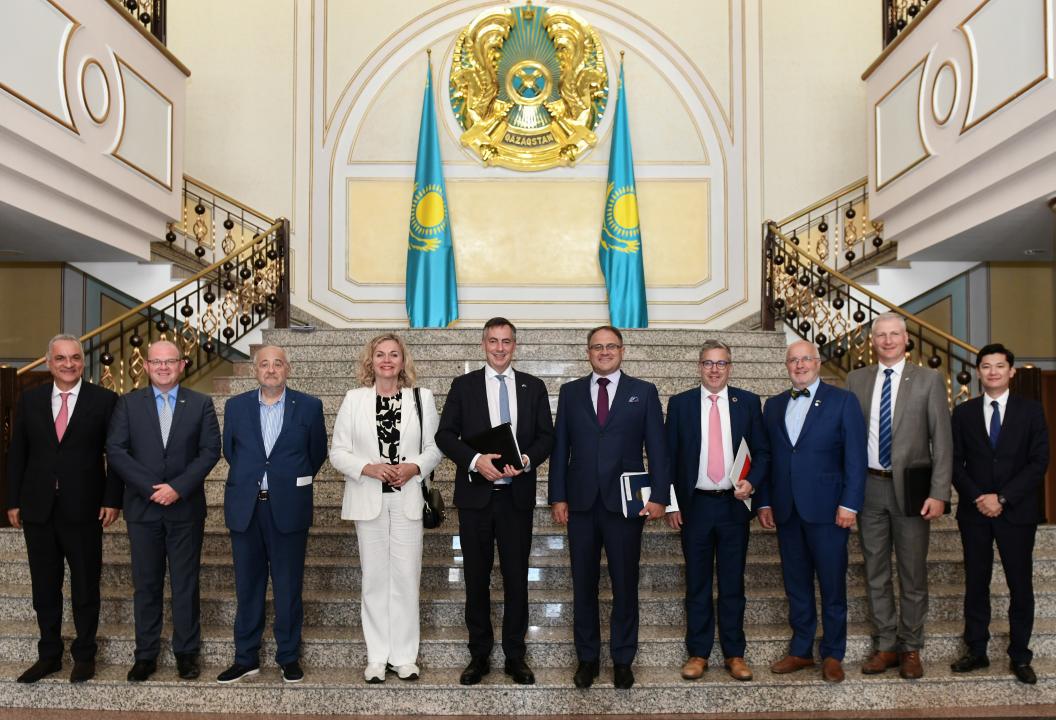
The delegation meets Deputy Foreign Minister Roman Vassilenko. Photo credit: Kazakh Foreign Ministry
A milestone in diplomatic relations between Kazakhstan and the EU
In 2023, Kazakhstan and the EU marked the 30th anniversary of diplomatic ties, which McAllister noted represents a “strong partnership based on mutual respect and trust, close economic and trade links and a shared understanding of many global challenges.”
The Enhanced Partnership and Cooperation Agreement (EPCA), which was signed in 2015 and came into full force in March 2020, has served as a major catalyst in the development of bilateral relations, covering 29 areas of cooperation. Kazakhstan became the first country in Central Asia to sign this kind of agreement with the EU.
The year of 2022 also witnessed a series of high-level visits facilitating important political and economic discussions between Kazakhstan and the EU. President Kassym-Jomart Tokayev met with President of the European Council Charles Michel and President of the European Commission Ursula von der Leyen, on the margins of the United Nations General Assembly in New York in September 2022.
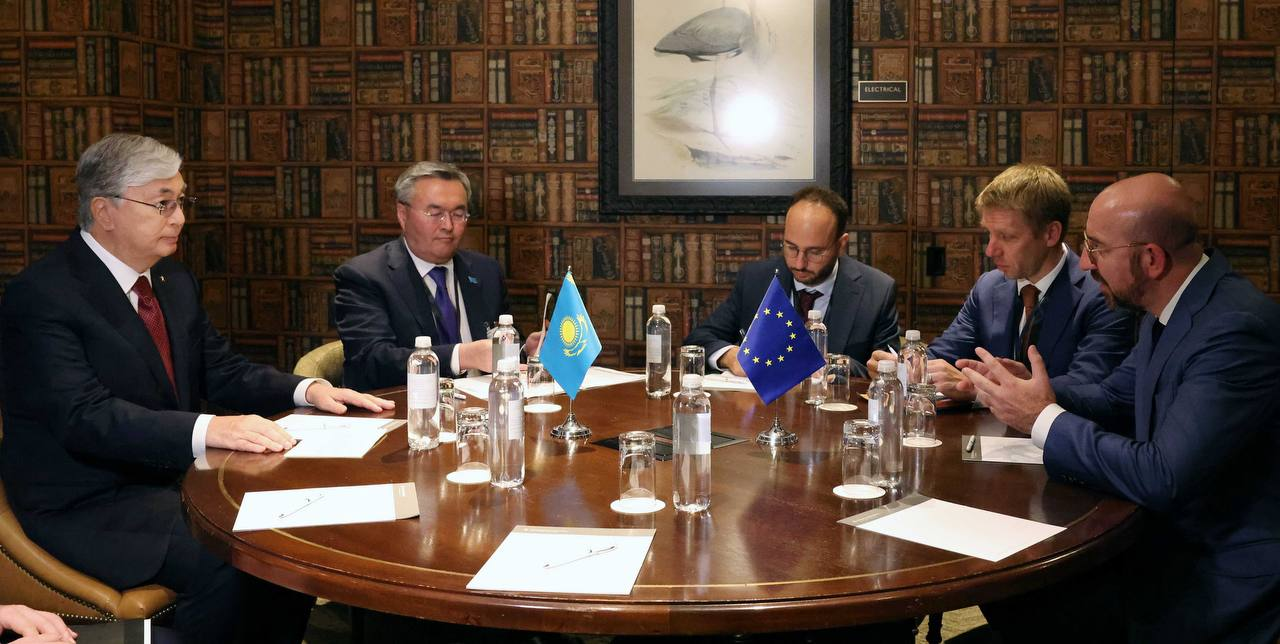
President Tokayev at a bilateral meeting with President of the European Council Charles Michel in September 2022 in New York. Photo credit: Akorda press service
In October 2022, Michel paid an official visit to Kazakhstan, witnessing the signing of a groundbreaking green hydrogen project to be implemented by the German-Swedish Svevind company in the Mangystau Region. He also took part in the first-of-its-kind Central Asia – EU meeting at the presidential level, with the second taking place in Cholpon-Ata in June 2023.
EU High Representative for Foreign Affairs and Security Policy and Vice-President of the European Commission Josep Borrell was on his first official visit to Kazakhstan in November 2022.
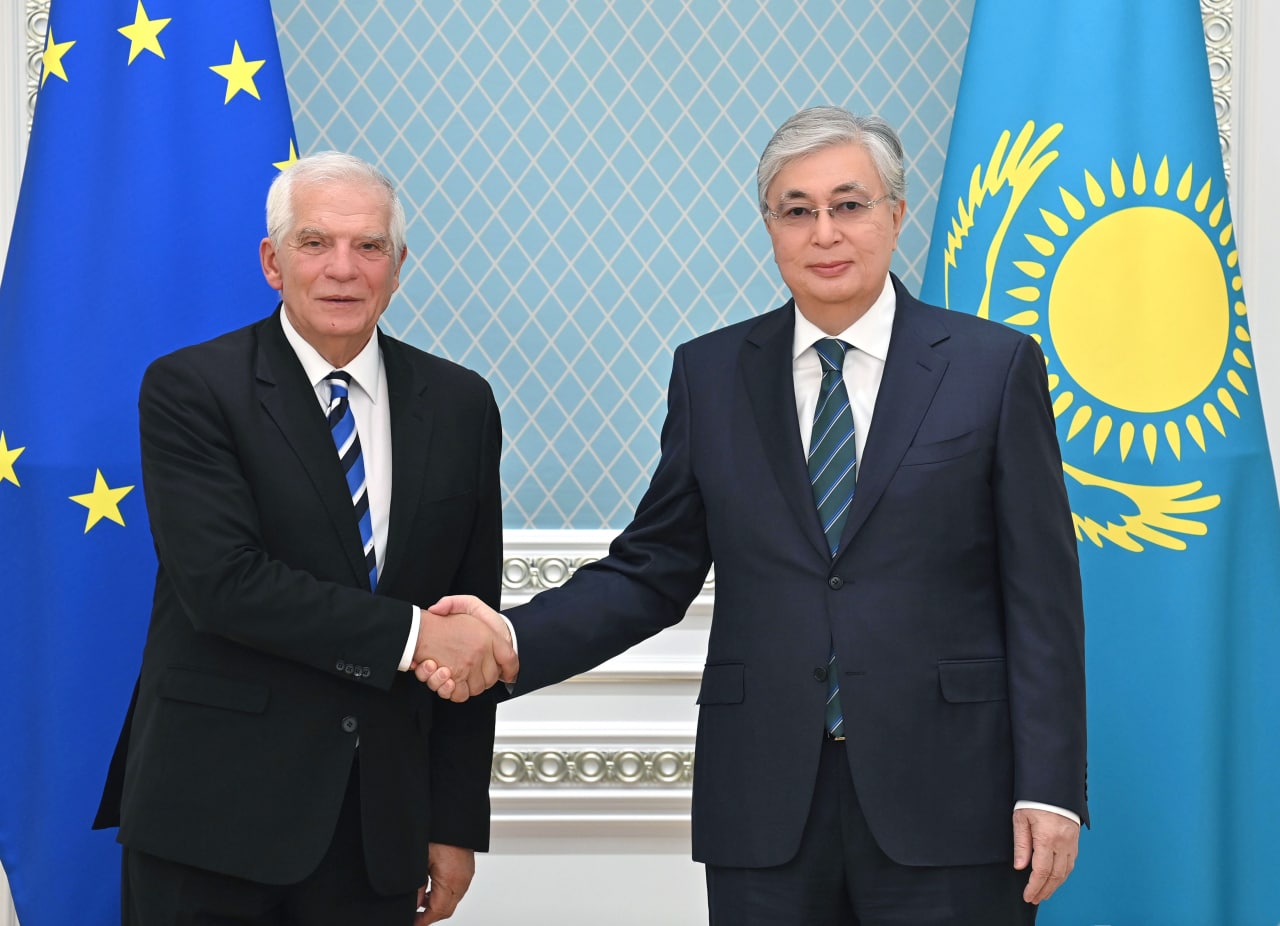
Kassym-Jomart Tokayev and Josep Borrell. Photo credit: Akorda
These high-level visits and many other developments reflect the EU’s major push to boost relations with Kazakhstan and Central Asia after the bloc “rediscovered with much greater clarity” their importance, as Kazakh Deputy Foreign Minister Vassilenko put it in his interview with NE Global last summer.
McAllister acknowledged their visit to Kazakhstan and Kyrgyzstan made them sure of the need for the EU to become more active and engaged with the countries in this region.
“Motivated by this conviction, we will be drafting a report on the EU strategy on Central Asia, which will be adopted by the European Parliament in the form of a resolution,” he said.
The report will also consider the geopolitical developments, including war, the Taliban takeover of Afghanistan, and political developments in neighboring countries.
Record high trade volumes
EU is Kazakhstan’s key trade and investment partner. In 2022, trade turnover reached a record high of $40 billion out of the $134 billion in annual foreign trade, data from the Kazakh Foreign Ministry shows. Exports made up $32.4 billion, while imports stood at $7.6 billion.
In the first six months of 2023, trade turnover hit $20.22 billion, accounting for a third of the country’s foreign trade. Kazakh exports made up $15.2 billion.
The nation mainly exports crude oil, oil products, uranium, hydrogen, inert gases and other non-metals, ferroalloys, flax seeds, titanium and titanium products, combed cotton fiber, copper and copper cathodes, and natural gas to the EU.
Key import commodities include medicines packaged for retail sale, fittings for pipelines, computing machines, seamless ferrous metal pipes, tubes and profiles, vaccines, blood serums, and car parts.
In the first quarter of 2023, foreign direct investment (FDI) inflows from the EU reached $2.74 billion. In 2022, the figure stood at $12.5 billion, with the Netherlands remaining the largest investor in the Kazakh economy.
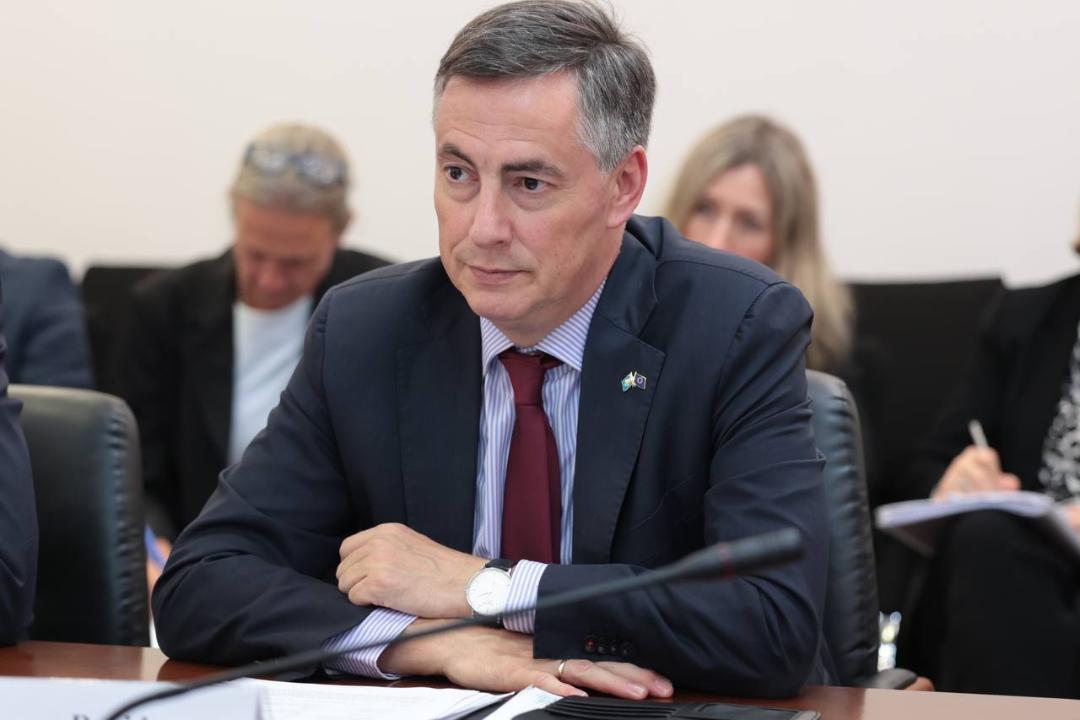
David McAllister during the meeting with Alibek Kuantyrov in Astana. Photo credit: Kazakh Ministry of National Economy
The EU also accounts for $170 billion in investment in Kazakhstan out of $410 billion invested in the country since its independence. “The EPCA provisions definitely had an impact on this growth,” McAllister added.
More than 3,000 companies with European capital operate in Kazakhstan, including Shell, Eni, Total, Amazonen-Werke, Air Liquide, and Alstom.
To support the implementation of the EPCA, Kazakhstan and the EU signed a bilateral Cooperation Facility that focuses on the sustainable green economy, including the green transition of the Kazakh economy and the rule of law.
Energy cooperation gains momentum
McAllister stressed the significant potential for energy cooperation as the EU seeks to diversify its energy supply.
“75% of Kazakhstan’s oil exports already go to the EU. It is also the world’s leading producer of uranium, with an established partnership with the EU in this domain. It is important to maintain Kazakhstan’s status as a reliable energy supplier, including by exploring alternative supply routes such as the Middle Corridor,” he explained.
A memorandum of understanding on a strategic partnership in the field of raw materials, batteries and renewable hydrogen, signed by Kazakh Prime Minister Alikhan Smailov and Ursula von der Leyen on the sidelines of the 27th UN Climate Change Conference of the Parties (COP27) in November 2022, opens up significant opportunities, equally important for both sides.

Alikhan Smailov, Prime Minister of Kazakhstan, and European Commission President Ursula von der Leyen signed a memorandum of understanding establishing a partnership between the EU and Kazakhstan in November 2022. Photo credit: eeas.europa.eu
The EU benefits from the abundance of raw materials in Kazakhstan needed for new technologies in advancing ambitious green transition. Kazakhstan can produce nearly half of the 34 critical raw materials that EU economies need.
Kazakhstan also accounts for nearly a quarter of the world’s production of titanium sponges, used in the production of Airbus aircraft. It is the second largest chromium producer in the world, accounting for 16% of global production. The World Bank estimates over 5,000 unexplored deposits are still present in Kazakhstan, valued at over $46 trillion.
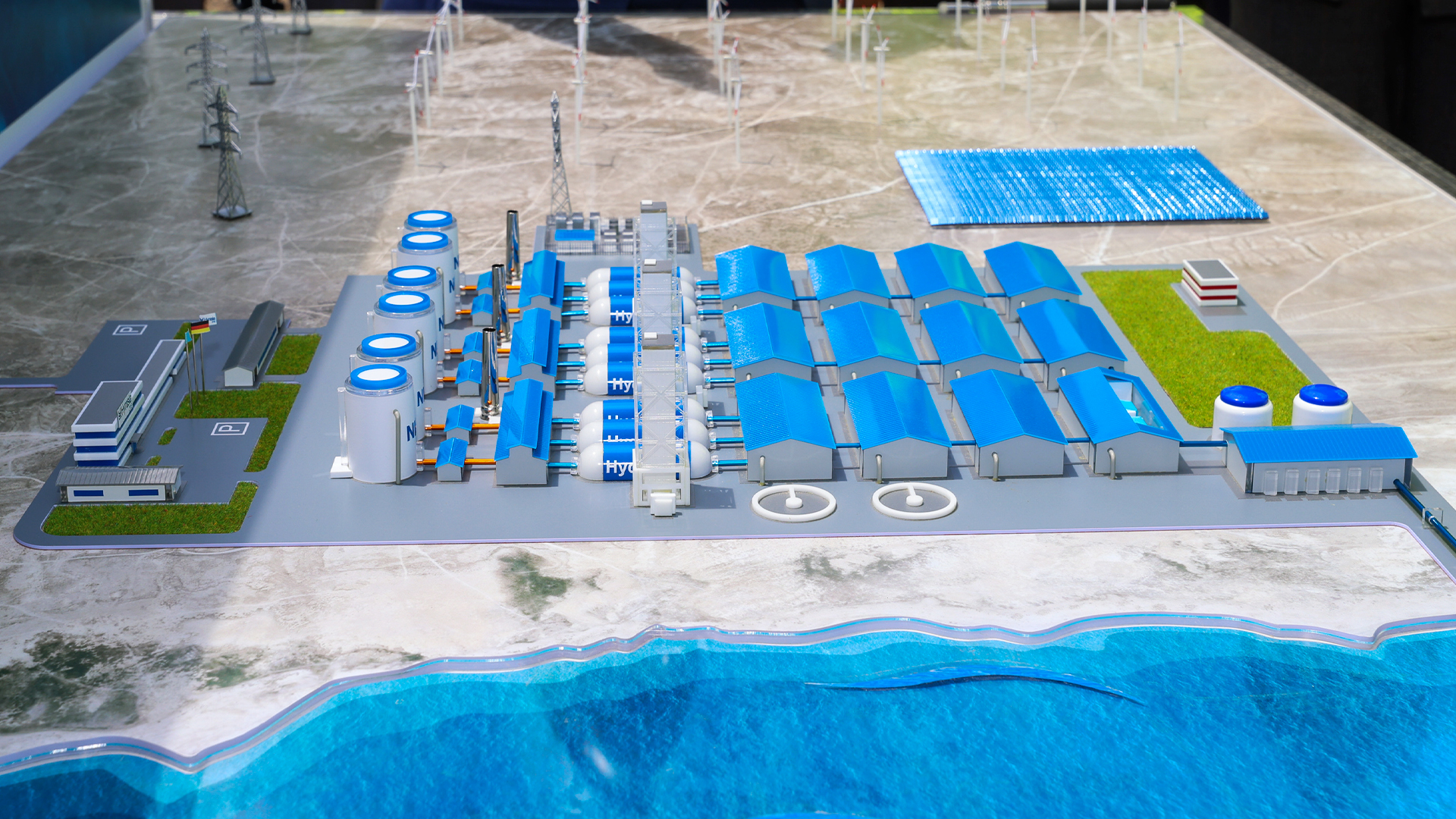
The model of a green hydrogen plant, a major energy project launched by Kazakhstan and EU, which will be built in partnership with Dresden-based Svevind company. Photo credit: Prime Minister’s press service.
A delegation of nearly 100 Kazakh companies that deal with rare earth metals is expected to attend the Raw Materials Week on Nov. 13-17 in Brussels. On Nov. 16, a Kazakhstan-focused day is now being planned, officials say.
But there are other ways in which energy cooperation can unfold.
“The EU can also be helpful in supporting the decarbonization and modernization of Kazakhstan’s energy sector, developing renewable energy and energy efficiency. This is yet another example of our strategic, mutually beneficial cooperation. Concrete steps should be taken by both sides to unlock its full potential,” said McAllister.
Boosting connectivity is a shared goal
One more significant area of collaboration is enhancing connectivity and strengthening logistics links between Kazakhstan, Central Asia, and the EU. The development of the Trans-Caspian International Transport Route (TITR), also known as the Middle Corridor, is a crucial task in this effort, repeatedly reiterated by Kazakhstan’s leadership as a priority.
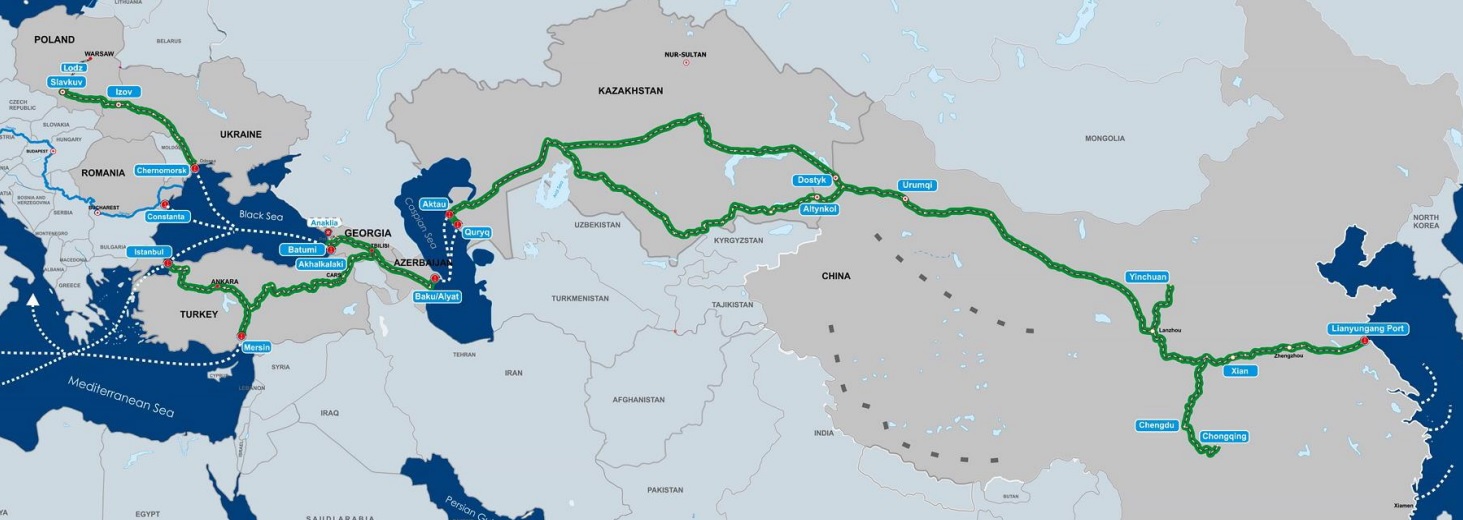
Trans-Caspian International Transport Route International Association was founded in January 2017 and now comprises 23 infrastructure and logistics companies from 10 countries.
The Middle Corridor, which starts from Southeast Asia and China, runs through Kazakhstan, the Caspian Sea, Azerbaijan, Georgia and further to Europe, is a complex and challenging undertaking, but it has the potential to bring significant benefits to Kazakhstan, the EU, and other countries in the region. Both sides are committed to working together to make this project a success.
The volume of cargo transportation along the route in seven months of 2023 reached 1.5 million tons, an increase of 86.3% compared to the same period in 2022. Export traffic from Kazakhstan grew 146%, reaching 1.22 million tons.
The TITR’s total throughput capacity is 5.8 million tons of cargo annually. In 2022, the volume of container traffic was 33,000 twenty-foot equivalent (TEU) containers, while the current potential is 80,000 TEU containers.
The recent study, funded by the EU and conducted by the European Bank for Reconstruction and Development (EBRD), identified the most sustainable transport connections and investment opportunities linking Central Asia and Europe. It concluded that the so-called Central Trans-Caspian Network, traversing southern Kazakhstan, is the most sustainable option.
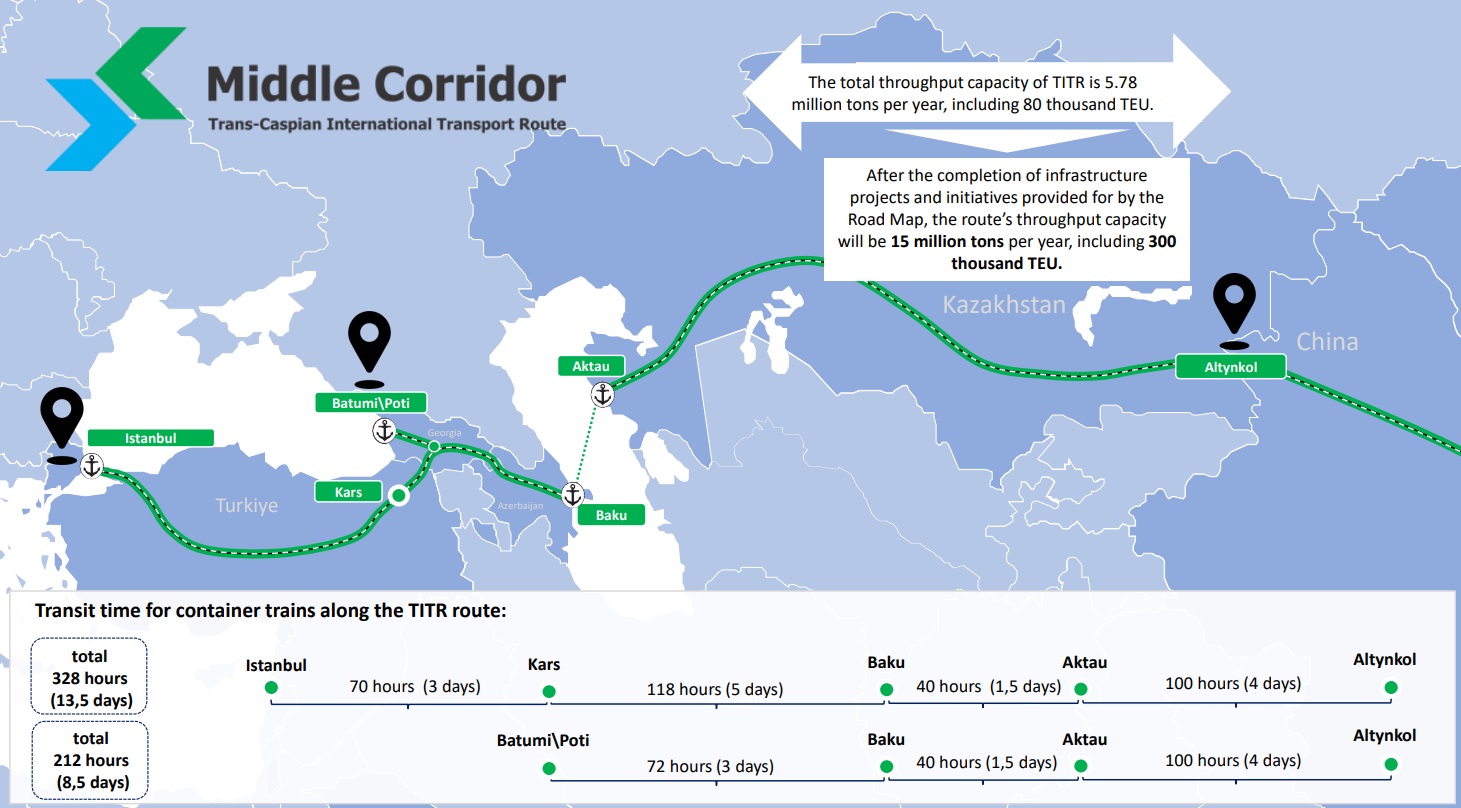
Photo credit: TITR Association
The report also included concrete recommendations in terms of developing hard infrastructure and soft connectivity elements, and if all of them are implemented, the Central Trans-Caspian Network could ensure a transit time of 13 days.
The study, conducted between November 2021 and June 2023, contributed to the implementation of the EU Strategy on Central Asia and the Global Gateway Strategy.
“Based on the results of the study, we will now work on eliminating identified bottlenecks to make the Middle Corridor faster, cheaper and safer,” said McAllister.
On Oct. 25-26, Brussels will also host the first Global Getaway conference. “This is a clear sign that connectivity is seen as the highest priority in Brussels. An Investors’ Forum will also take place in Brussels in January to boost financing for the Corridor,” said McAllister.
Impact of sanctions
According to McAllister, the turbulent period all countries are facing now is a period of “both opportunities and challenges” for developing relations.
He said the Western sanctions are a “crucial instrument, adopted for a very important purpose, that is to deprive the Russian war machine of the funds and components that it needs in order to continue its brutal aggression against Ukraine.”
“The most pressing issue we raised was the risk of circumventing sanctions,” he said. “These sanctions are not aimed at the countries of Central Asia. However, we understand the impact that they have had on Kazakhstan, and we are working to help your country to diversify its supply chains.”.
McAllister emphasized EU is “serious” about ensuring their effective implementation with its partners.
“Appreciation is extended for the engagement of Kazakhstan’s government with the EU on this crucial matter and for the steps taken to ensure that Kazakhstan does not serve as a platform for evading these sanctions. In particular, Kazakhstan’s decision to extend the moratorium on exports of military equipment to Russia is welcomed. We wait to see the results of the measures that are being undertaken,” he said.
Dialogue on human rights
The EPCA puts a strong emphasis on democracy, the rule of law, human rights and fundamental freedoms. McAllister said the European Parliament closely monitors developments regarding human rights, “which is why we met representatives of civil society and independent media.”
“The EU’s representatives also exchanged views with Artur Lastayev, Commissioner for Human Rights. The implementation of reforms, particularly those regarding freedom of association and assembly, was an important topic in our discussions,” said McAllister, emphasizing that the members of the European Parliament are waiting for the “promised” report on the tragic January events in Kazakhstan.
The constitutional reform which stems from the national referendum in June last year and the parliamentary elections in March 2023, “heralded a new start for Kazakhstan towards a more democratic model of governance.”
“We welcome Kazakhstan’s decision to invite OSCE/ODIHR to monitor the constitutional referendum, presidential and parliamentary elections and encourage the implementation of all recommendations proposed in the ODIHR’s election monitoring reports,” he said.

